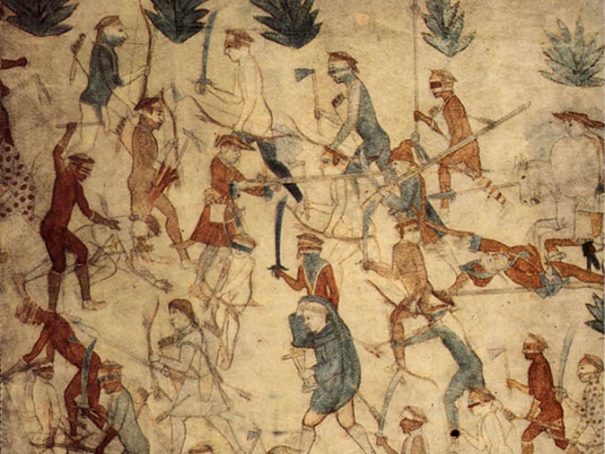
Students majoring in Sociology/Anthropology (ANSO) are encouraged to take philosophy courses that demonstrate the relevance of philosophical inquiry to their fields:
- PHIL 212 Philosophy of Social Science
- PHIL 195 Knowledge & Reality: An Introduction
- PHIL 105 Ethics
- PHIL 109 Existentialism
- PHIL 208 19th-Century Philosophy
Sociology and Anthropology students are encouraged to build an interdisciplinary minor in philosophy around these courses. Why? Sociology and Anthropology are founded upon basic philosophical assumptions that are now openly contested by sociologists and anthropologists in ongoing “theory debates.” A working familiarity with the historical traditions and current research of philosophy is extremely helpful for understanding such debates. To better understand the philosophical foundations of Sociology and Anthropology, students are encouraged to take the “History and Traditions” courses listed above. Classic figures in sociology; e.g. Marx, Durkheim, and Weber, were deeply influenced by philosophical assumptions, and sociologists today openly debate their contemporary relevance. Contemporary anthropologists; e.g. Geertz, Clifford, Bourdieu, etc. hotly contest what counts as good anthropology, and a working familiarity with the philosophers who inform such debates is indispensable in moving such debates forward. Moreover, various research orientations are now vehemently criticized for being unreflective about biases, ethnic, cultural, historical, racial, gender, etc. and a basic grasp of philosophical theories of knowledge is indispensable in addressing these concerns. Because philosophical issues arise within Sociology and Anthropology, contemporary practitioners in such fields can no longer afford to be philosophically naïve. The Philosophy Department invites students in Anthropology and Sociology to consult closely with the department to construct an individually tailored interdisciplinary minor.
Some questions raised and discussed in philosophy classes related to Sociology and Anthropology:
- How do the social sciences differ from the natural sciences?
- What are the various methods social scientists use to study societies and peoples, and how should we understand the remarkable diversity of such methods?
- What models of individual agency and social coordination do social scientists presuppose in their research?
- Can we tell whether other people’s experiences are like our own?
- Can sociologists and anthropologists study different societies and peoples without presupposing their own social, cultural, ethnic, and gender assumptions?
- How have issues of diversity: cultural, ethnic, gender, and racial affected the self-understanding of social scientists?
- Are values relative to individuals or cultures? What are the ethical ramifications of this question?
- Are human beings determined by social and cultural influences to act as they do? To the extent this is so, what does this mean for personal responsibility?
- Do social scientists examine individual actions in terms of reasons, causes, cultural values, social habits, or economic patterns?
- How might feminist considerations give us a new perspective on traditional conceptions of persons, society, institutions, and practices?
